formerly eScholarship Editions


|
|
|
|
Your search for
'Philosophy' in subject
and
Public
in rights
found 54 book(s). | Modify Search | Displaying 41 - 54 of 54 book(s) | |
| 41. |  | Title: Representation and its discontents: the critical legacy of German romanticism Author: Seyhan, Azade Published: University of California Press, 1992 Subjects: Philosophy | Literary Theory and Criticism | German Studies Publisher's Description: Azade Seyhan provides a concise, elegantly argued introduction to the critical theory of German Romanticism and demonstrates how its approach to the metaphorical and linguistic nature of knowledge is very much alive in contemporary philosophy and literary theory. Her analysis of key thinkers such as Friedrich Schlegel and Novalis explores their views on rhetoric, systematicity, hermeneutics, and cultural interpretation. Seyhan examines German Romanticism as a critical intervention in the debates on representation, which developed in response to the philosophical revolution of German Idealism.Facing a chaotic political and intellectual landscape, the eighteenth-century theorists sought new models of understanding and new objectives for criticism and philosophy. Representation and Its Discontents identifies the legacy of this formative moment in modern criticism and suggests its relevance to contemporary discussions of post-structuralism, orientalism, theories of textuality, and the nature of philosophical discourse. [brief] Similar Items |
| 42. | 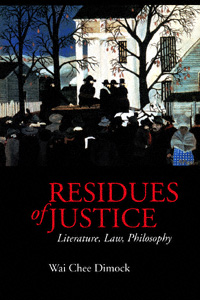 | Title: Residues of justice: literature, law, philosophy Author: Dimock, Wai-chee 1953- Published: University of California Press, 1996 Subjects: Literature | Literary Theory and Criticism | American Studies | Law | Philosophy Publisher's Description: In this arresting book, Wai Chee Dimock takes on the philosophical tradition from Kant to Rawls, challenging its conception of justice as foundational, self-evident, and all-encompassing. The idea of justice is based on the premise that the world can be resolved into commensurate terms: punishment equal to the crime, redress equal to the injury, benefit equal to the desert. Dimock focuses, however, on what remains unexhausted, unrecovered, and noncorresponding in the exercise of justice. To honor these "residues," she turns to literature, which, in its linguistic density, transposes the clean abstractions of law and philosophy into persistent shadows, the abiding presence of the incommensurate. Justice can only be a partial answer to the phenomenon of human conflict.In arguing for justice as an incomplete virtue, Dimock draws upon legal history, political philosophy, linguistics, theology, and feminist theory; she discusses Aristotle and Augustine, Locke and Luther, Marx and Durkheim, Michael Sandel and Carol Gilligan, Noam Chomsky and Mary Ann Glendon. She also examines an unusual configuration of nineteenth-century American authors, pairing figures such as Herman Melville and Rebecca Harding Davis, Walt Whitman and Susan Warner.The result is a book both passionate and scholarly. It invites us to rethink the meanings of literature, law, and philosophy, and to imagine a language of community more supple and more nuanced than the language of justice. [brief] Similar Items |
| 43. | 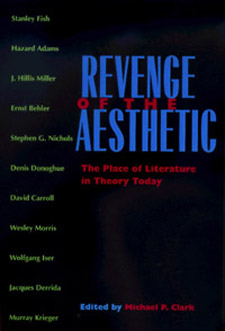 | Title: Revenge of the aesthetic: the place of literature in theory today Author: Clark, Michael 1950- Published: University of California Press, 2000 Subjects: Literature | Literary Theory and Criticism | Philosophy Publisher's Description: This cutting-edge collection of essays showcases the work of some of the most influential theorists of the past thirty years as they grapple with the question of how literature should be treated in contemporary theory. The contributors challenge trends that have recently dominated the field--especially those that emphasize social and political issues over close reading and other analytic methods traditionally associated with literary criticism. Written especially for this collection, these essays argue for the importance of aesthetics, poetics, and aesthetic theory as they present new and stimulating perspectives on the directions which theory and criticism will take in the future. In addition to providing a selection of distinguished critics writing at their best, this collection is valuable because it represents a variety of fields and perspectives that are not usually found together in the same volume. Michael Clark's introduction provides a concise, cogent history of major developments and trends in literary theory from World War II to the present, making the entire volume essential reading for students and scholars of literature, literary theory, and philosophy. [brief] Similar Items |
| 44. | 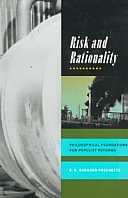 | Title: Risk and rationality: philosophical foundations for populist reforms Author: Shrader-Frechette, K. S 1944- Published: University of California Press, 1991 Subjects: Philosophy | Ethics | Social Problems | Political Theory Publisher's Description: Only ten to twelve percent of Americans would voluntarily live within a mile of a nuclear plant or hazardous waste facility. But industry spokespersons claim that such risk aversion represents ignorance and paranoia, and they lament that citizen protests have delayed valuable projects and increased their costs.Who is right? In Risk and Rationality , Kristin Shrader-Frechette argues that neither charges of irresponsible endangerment nor countercharges of scientific illiteracy frame the issues properly. She examines the debate over methodological norms for risk evaluation and finds analysts arrayed in a spectrum. Points of view extend from cultural relativists who believe that any risk can be justified (since no rational standards are ultimately possible) to naive positivists who believe that risk evaluation can be objective, neutral, and value free. Both camps, she argues, are wrong, because risk evaluation as a social process is rational and objective, even though all risk-evaluation rules are value-laden.Shrader-Frechette defends a middle position called "scientific proceduralism." She shows why extremist views are unreliable, reveals misconceptions underlying current risk-evaluation methods and strategies, and sketches the reforms needed to set hazard assessment and risk evaluation on a publicly defensible foundation.These reforms involve mathematical, economic, ethical, and legal procedures. They constitute a new paradigm for assessment when acceptance of public hazards is rational, recognizing that laypersons are often more rational in their evaluation of societal risks than either experts or governments have acknowledged. Such reforms would provide citizens with more influence in risk decisions and focus on mediating ethical conflicts, rather than seeking to impose the will of experts. Science, she argues, need not preclude democracy. [brief] Similar Items |
| 45. | 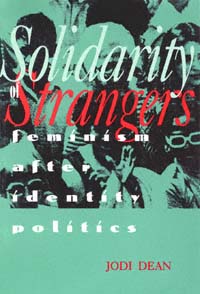 | Title: Solidarity of strangers: feminism after identity politics Author: Dean, Jodi 1962- Published: University of California Press, 1996 Subjects: Gender Studies | Postcolonial Studies | Women's Studies | Politics | Philosophy Publisher's Description: Solidarity of Strangers is a crucial intervention in feminist, multicultural, and legal debates that will ignite a rethinking of the meaning of difference, community, and participatory democracy. Arguing for a solidarity rooted in a respect for difference, Dean offers a broad vision of the shape of . . . [more] Similar Items |
| 46. | 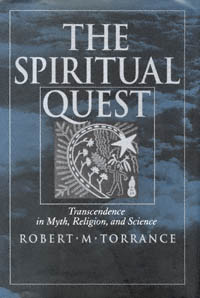 | Title: The spiritual quest: transcendence in myth, religion, and science Author: Torrance, Robert M. (Robert Mitchell) 1939- Published: University of California Press, 1994 Subjects: Religion | Indigenous Religions | Cultural Anthropology | Folklore and Mythology | Language and Linguistics | Philosophy | History and Philosophy of Science | Literature Publisher's Description: Robert Torrance's wide-ranging, innovative study argues that the spiritual quest is rooted in our biological, psychological, linguistic, and social nature. The quest is not, as most have believed, a rare mystical experience, but a frequent expression of our most basic human impulses. Shaman and scientist, medium and poet, prophet and philosopher, all venture forth in quest of visionary truths to transform and renew the world.Yet Torrance is not trying to reduce the quest to an "archetype" or "monomyth." Instead, he presents the full diversity of the quest in the myths and religious practices of tribal peoples throughout the world, from Oceania to India, Africa, Siberia, and especially the Americas. In theorizing about the quest, Torrance draws on thinkers as diverse as Bergson and Piaget, van Gennep and Turner, Pierce and Popper, Freud, Darwin, and Chomsky. This is a book that will expand our knowledge - and awareness - of a fundamental human activity in all its fascinating complexity. [brief] Similar Items |
| 47. | 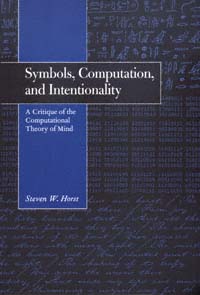 | Title: Symbols, computation, and intentionality: a critique of the computational theory of mind Author: Horst, Steven W 1960- Published: University of California Press, 1996 Subjects: Philosophy | Social and Political Thought | Psychology Publisher's Description: The computational theory of mind - the belief that the mind can be likened to a computer and that cognitive states possess the generative and compositional properties of natural languages - has proven enormously influential in recent philosophical studies of cognition. In this carefully argued critique, Steven Horst pronounces the theory deficient. He refutes its claims and assumptions, particularly the assertion that symbolic representations need not have conventional meaning. Horst goes on to sketch a new methodology for looking at the philosophy of psychology, one that provides a more fruitful way of comparing computational psychology with rival views emerging from connectionism and neuroscience. Original and comprehensive, his book is certain to provoke controversy and stimulate debate. [brief] Similar Items |
| 48. | 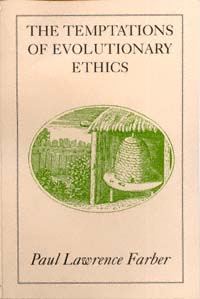 | Title: The temptations of evolutionary ethics Author: Farber, Paul Lawrence 1944- Published: University of California Press, 1994 Subjects: Philosophy | History | Ethics | History and Philosophy of Science Publisher's Description: Evolutionary theory tells us about our biological past; can it also guide us to a moral future? Paul Farber's compelling book describes a century-old philosophical hope held by many biologists, anthropologists, psychologists, and social thinkers: that universal ethical and social imperatives are built into human nature and can be discovered through knowledge of evolutionary theory.Farber describes three upsurges of enthusiasm for evolutionary ethics. The first came in the early years of mid-nineteenth century evolutionary theories; the second in the 1920s and '30s, in the years after the cultural catastrophe of World War I; and the third arrived with the recent grand claims of sociobiology to offer a sound biological basis for a theory of human culture.Unlike many who have written on evolutionary ethics, Farber considers the responses made by philosophers over the years. He maintains that their devastating criticisms have been forgotten - thus the history of evolutionary ethics is essentially one of oft-repeated philosophical mistakes.Historians, scientists, social scientists, and anyone concerned about the elusive basis of selflessness, altruism, and morality will welcome Farber's enlightening book. [brief] Similar Items |
| 49. | 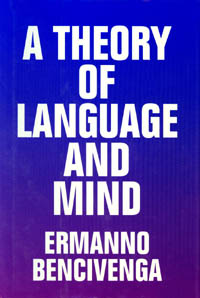 | Title: A theory of language and mind Author: Bencivenga, Ermanno 1950- Published: University of California Press, 1997 Subjects: Philosophy Publisher's Description: In his most recent book, Ermanno Bencivenga offers a stylistically and conceptually exciting investigation of the nature of language, mind, and personhood and the many ways the three connect. Bencivenga, one of the most iconoclastic voices to emerge in contemporary American philosophy, contests the basic assumptions of analytic (and also, to an extent, postmodern) approaches to these topics. His exploration leads through fascinating discussions of education, courage, pain, time and history, selfhood, subjectivity and objectivity, reality, facts, the empirical, power and transgression, silence, privacy and publicity, and play - all themes that are shown to be integral to our thinking about language. Relentessly bending the rules, Bencivenga frustrates our expectations of a "proper" theory of language. He invokes the transgressions of Nietzsche and Wittgenstein even as he appropriates the aphoristic style of Wittgenstein's Tractatus . Written in a philosophically playful and experimental mode, A Theory of Language and Mind draws the reader into a sense of continual surprise, therapeutic discomfort, and discovery. [brief] Similar Items |
| 50. | 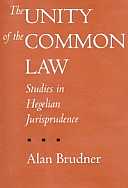 | Title: The unity of the common law: studies in Hegelian jurisprudence Author: Brudner, Alan Published: University of California Press, 1995 Subjects: Philosophy | Law | Social and Political Thought | Political Theory Publisher's Description: Countering the influential view of Critical Legal Studies that law is an incoherent mixture of conflicting political ideologies, this book forges a new paradigm for understanding the common law as being unified and systematic. Alan Brudner applies Hegel's legal and moral philosophy to fashion a comprehensive synthesis of the common law of property, contract, tort, and crime.At a time when there is a strong tendency among scholars to view the common law as essentially fragmentary, inconsistent, and contradictory, Brudner suggests instead a coherence that synthesizes several interrelated dichotomies: good-centered and right-based legal paradigms, instrumental and non-instrumental conceptions of law, externalist and internalist interpretations of the common law system, and communitarian and individualist attempts to found the legal enterprise.Brudner covers genuinely new ground through an interpretation of the common law from the standpoint of Hegelian legal philosophy. His unifying notion of common law corresponds to Hegel's notion of Geist , suggesting a designation of the mutual dependence of the community and the atomistic self for their confirmation as ends. [brief] Similar Items |
| 51. | 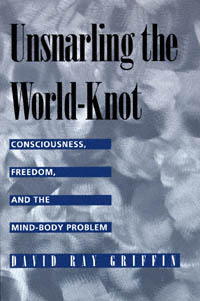 | Title: Unsnarling the world-knot: consciousness, freedom, and the mind-body problem Author: Griffin, David Ray 1939- Published: University of California Press, 1998 Subjects: Philosophy | Intellectual History Publisher's Description: The mind-body problem, which Schopenhauer called the "world-knot," has been a central problem for philosophy since the time of Descartes. Among realists - those who accept the reality of the physical world - the two dominant approaches have been dualism and materialism, but there is a growing consensus that, if we are ever to understand how mind and body are related, a radically new approach is required.David Ray Griffin develops a third form of realism, one that resolves the basic problem (common to dualism and materialism) of the continued acceptance of the Cartesian view of matter. In dialogue with various philosophers, including Dennett, Kim, McGinn, Nagel, Seager, Searle, and Strawson, Griffin shows that materialist physicalism is even more problematic than dualism. He proposes instead a pan-experientialist physicalism grounded in the process philosophy of Alfred North Whitehead. Answering those who have rejected "pan-psychism" as obviously absurd, Griffin argues compellingly that pan-experientialism, by taking experience and spontaneity as fully natural, can finally provide a naturalistic account of the emergence of consciousness - an account that also does justice to the freedom that we all presuppose in practice. [brief] Similar Items |
| 52. | 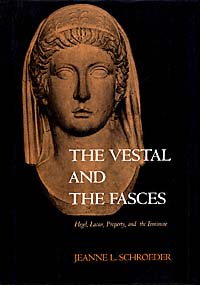 | Title: The vestal and the fasces: Hegel, Lacan, property, and the feminine Author: Schroeder, Jeanne Lorraine Published: University of California Press, 1998 Subjects: Law | Philosophy | Gender Studies Publisher's Description: In this feminist exploration of the erotics of the marketplace, Hegel's notion of property and Lacan's idea of the phallus serve parallel functions in creating the subjectivity necessary for self-actualization. Subjectivity requires intersubjective relationships mediated through a regime of possessing, enjoying, and exchanging an object of desire. For Hegel, this regime is property; for Lacan, it is sexuality, symbolized by the Phallus, which we conflate with the male organ and the female body. Property law, in Jeanne Schroeder's account, is implicitly figured by similar anatomical metaphors for that which men wish to possess and that which women try to be and enjoy. This is reflected in imagery taken from ancient Rome - the axe and bundle of sticks known as the Fasces, and the virgin priestess called the Vestal.Schroeder traces the persistence of phallic metaphors in modern jurisprudence. Rejecting the dominant schools of legal feminism, she reconceptualizes property - the legal relationship as well as its not necessarily material object - as a necessary moment in the human struggle for love and recognition. The Feminine, for Schroeder, is the radical negativity at the heart of both Lacan's split subject and Hegel's concept of freedom. Feminine emancipation and private property are, therefore, equally necessary conditions for the actualization of the free individual and the just society. Feminist scholars, social theorists, political scientists, philosophers, and lawyers will find in Schroeder's analysis scintillating new perspectives on property theory and the feminine within the market and the law. [brief] Similar Items |
| 53. | 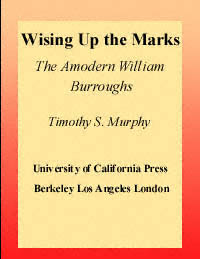 | Title: Wising up the marks: the modern William Burroughs Author: Murphy, Timothy S 1964- Published: University of California Press, 1998 Subjects: Literature | American Studies | Literary Theory and Criticism | Philosophy Publisher's Description: William S. Burroughs is one of the twentieth century's most visible, controversial, and baffling literary figures. In the first comprehensive study of the writer, Timothy S. Murphy places Burroughs in the company of the most significant intellectual minds of our time. In doing so, he gives us an immensely readable and convincing account of a man whose achievements continue to have a major influence on American art and culture. Murphy draws on the work of such philosophers as Gilles Deleuze, Félix Guattari, Theodor Adorno, and Jean-Paul Sartre, and also investigates the historical contexts from which Burroughs's writings arose.From the paranoid isolationism of the Cold War through the countercultural activism of the sixties to the resurgence of corporate and state control in the eighties, Burroughs's novels, films, and music hold a mirror to the American psyche. Murphy coins the term "amodernism" as a way to describe Burroughs's contested relationship to the canon while acknowledging the writer's explicit desire for a destruction of such systems of classification. Despite the popular mythology that surrounds Burroughs, his work has been largely excluded from the academy of American letters. Finally here is a book that presents a solid portrait of a major artistic innovator, a writer who combines aesthetics and politics and who can perform as anthropologist, social goad, or media icon, all with consummate skill. [brief] Similar Items |
| 54. | 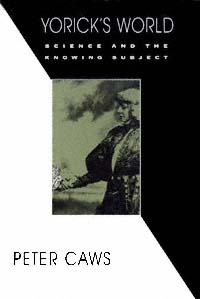 | Title: Yorick's world: science and the knowing subject Author: Caws, Peter Published: University of California Press, 1993 Subjects: Philosophy | History and Philosophy of Science Publisher's Description: Peter Caws provides a fresh and often iconoclastic treatment of some of the most vexing problems in the philosophy of science: explanation, induction, causality, evolution, discovery, artificial intelligence, and the social implications of technological rationality.Caws's work has been shaped equally by the insights of Continental philosophy and a concern with scientific practice. In these twenty-eight essays spanning more than a quarter of a century, he ranges from discussions of the work of French philosopher Gaston Bachelard, to relations between science and surrealism, to the concept of intentionality, to the limits of quantitative description. A lively mix of history, theory, speculation, and analysis, Yorick's World presents a vision of science that includes human history and social life. It will interest professional philosophers and scientists, and at the same time its directness will make it readily accessible to nontechnical readers. [brief] Similar Items |